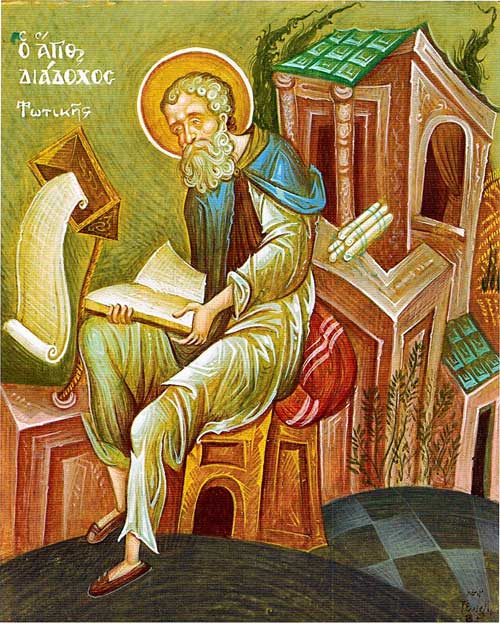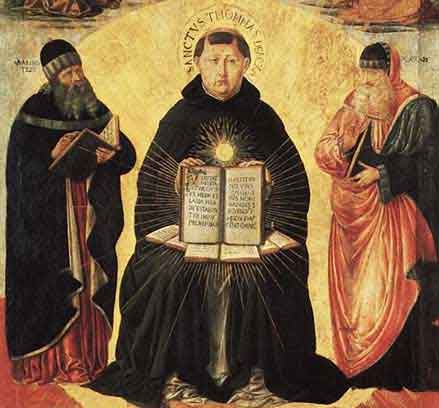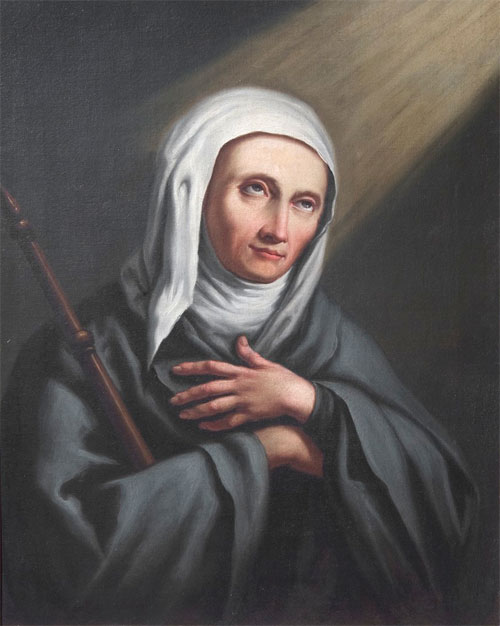From a letter from Saint Bernadette Soubirous, virgin
(Ep. ad Gondrand a 1861: cf. A. Ravier, Les escrits de sainte Bernadette, Paris, 1961, pp. 53-59)
The apparition of Our Lady of Lourdes
I had gone down one day with two other girls to the bank of the river Gave when suddenly I heard a kind of rustling sound. I turned my head toward the field by the side of the river but the trees seemed quite still and the noise was evidently not from them. Then I looked up and caught sight of the cave where I saw a lady wearing a lovely white dress with a bright belt. On top of each of her feet was a pale yellow rose, the same color as her rosary beads.
At this I rubbed my eyes, thinking I was seeing things, and I put my hands into the fold of my dress where my rosary was. I wanted to make the sign of the cross but for the life of me I couldn’t manage it and my hand just fell down. Then the lady made the sign of the cross herself and at the second attempt I managed to do the same, though my hands were trembling. Then I began to say the rosary while the lady let her beads slip through her fingers, without moving her lips. When I stopped saying the Hail Mary, she immediately vanished.
I asked my two companions if they had noticed anything, but they said no. Of course they wanted to know what I was doing and I told them that I had seen a lady wearing a nice white dress, though I didn’t know who she was. I told them not to say anything about it, and they said I was silly to have anything to do with it. I said they were wrong and I came back next Sunday, feeling myself drawn to the place….
The third time I went the lady spoke to me and asked me to come every day for fifteen days. I said I would and then she said that she wanted me to tell the priests to build a chapel there. She also told me to drink from the stream. I went to the Gave, the only stream I could see. Then she made me realise she was not speaking of the Gave and she indicated a little trickle of water close by. When I got to it I could only find a few drops, mostly mud. I cupped my hands to catch some liquid without success and then I started to scrape the ground. I managed to find a few drops of water but only at the fourth attempt was there a sufficient amount for any kind of drink. The lady then vanished and I went back home.
I went back each day for two weeks and each time, except one Monday and one Friday, the lady appeared and told me to look for a stream and wash in it and to see that the priests build a chapel there. I must also pray, she said, for the conversion of sinners. I asked her many times what she meant by that, but she only smiled. Finally with outstretched arms and eyes looking up to heaven she told me she was the Immaculate Conception.
During the two weeks she told me three secrets but I was not to speak about them to anyone and so far I have not.
COLLECT
Grant us, O merciful God, protection in our weakness,
that we, who keep the Memorial of the Immaculate Mother of God,
may, with the help of her intercession,
rise up from our iniquities.
Through our Lord Jesus Christ, your Son,
who lives and reigns with you in the unity of the Holy Spirit,
one God, for ever and ever.
Excerpts from the English translation of The Liturgy of the Hours (Four Volumes) © 1974, International Commission on English in the Liturgy Corporation. All rights reserved.
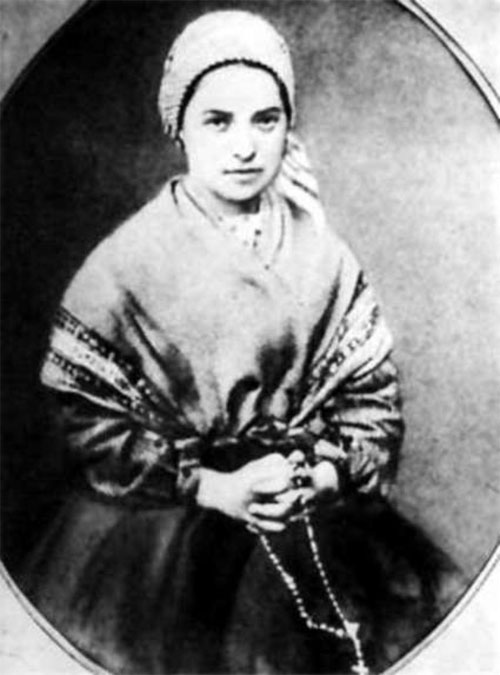
This entry was posted on Wednesday, February 11th, 2015 at 4:23 pm
You can follow any responses to this entry through the RSS 2.0 feed.
[powerpress]
From the treatise On Spiritual Perfection by Diadochus of Photice
(Cap 6:26-27, 30: PG 65, 1169, 1175-1176)
The mind has a spiritual sense which teaches us
to distinguish between good and evil
The light of true knowledge makes it possible to discern without error the difference between good and evil. Then the path of justice, which leads to the sun of Justice, brings the mind into the limitless light of knowledge, since it never fails to seek the love of God with all confidence.
Therefore, we must maintain great stillness of mind, even in the midst of our struggles. We shall then be able to distinguish between the different types of thoughts that come to us: those that are good, those sent by God, we will treasure in our memory; those that are evil and inspired y the devil we will reject. A comparison with the sea may help us. A tranquil sea allows the fisherman to gaze right to its depths. No fish can hide there and escape his sight. The stormy sea, however, becomes murky when it is agitated by the winds. The very depths that it revealed in its placidness, the sea now hides. The skills of the fisherman are useless.
Only the Holy Spirit can purify the mind: unless the strong man enters and robs the thief, the booty will not be recovered. So by every means, but especially by peace of soul, we must try to provide the Holy Spirit with a resting place. Then we shall have the light of knowledge shining within us at all times, and it will show up for what they are, all the dark and hateful temptations that come from demons, and not only will it show them up: exposure to this holy and glorious light will also greatly diminish their power.
This is why the Apostle says: Do not stifle the Spirit. The Holy Spirit is the Spirit of goodness: do not grieve him by your evil actions and thought, and so deprive yourself of the defense his light affords you. In his own being, which is eternal and life-giving, he is not stifled, but when his is grieved he turns away and leaves the mind in darkness, deprived of the light of knowledge.
The mind is capable of tasting and distinguishing accurately whatever is presented to it. Just as when our health is good we can tell the difference between good and bad food by our bodily sense of taste and reach for what is wholesome, so when our mind is strong and free from all anxiety, it is able to taste the riches of diving consolation, and to preserve, through love, the memory of this taste. This teaches us what is best with absolute certainty. As Saint Paul says: My prayer is that your love may increase more and more in knowledge and insight, and so enable you to choose what is best.
Excerpts from the English translation of The Liturgy of the Hours (Four Volumes) © 1974, International Commission on English in the Liturgy Corporation. All rights reserved.
This entry was posted on Wednesday, February 4th, 2015 at 5:57 am
You can follow any responses to this entry through the RSS 2.0 feed.
[powerpress]
From a conference by Saint Thomas Aquinas, priest
(Collatio 6 super Credo in Deum)
The Cross exemplifies every virtue
Why did the Son of God have to suffer for us? There was a great need, and it can be considered in a twofold way: in the first place, as a remedy for sin, and secondly, as an example of how to act.
It is a remedy, for, in the face of all the evils which we incur on account of our sins, we have found relief through the passion of Christ. Yet, it is no less an example, for the passion of Christ completely suffices to fashion our lives. Whoever wishes to live perfectly should do nothing but disdain what Christ disdained on the cross and desire what he desired, for the cross exemplifies every virtue.
If you seek the example of love: “Greater love than this no man has, than to lay down his life for his friends.” Such a man was Christ on the cross. And if he gave his life for us, then it should not be difficult to bear whatever hardships arise for his sake.
If you seek patience, you will find no better example than the cross. Great patience occurs in two ways: either when one patiently suffers much, or when one suffers things which one is able to avoid and yet does not avoid. Christ endured much on the cross, and did so patiently, because when he suffered he did not threaten; he was led like a sheep to the slaughter and he did not open his mouth. Therefore Christ’s patience on the cross was great. In patience let us run for the prize set before us, looking upon Jesus, the author and perfecter of our faith who, for the joy set before him, bore his cross and despised the shame.
If you seek an example of humility, look upon the crucified one, for God wished to be judged by Pontius Pilate and to die.
If you seek an example of obedience, follow him who became obedient to the Father even unto death. For just as by the disobedience of one man, namely, Adam, many were made sinners, so by the obedience of one man, many were made righteous.
If you seek an example of despising earthly things, follow him who is the King of kings and the Lord of lords, in whom are hidden all the treasures of wisdom and knowledge. Upon the cross he was stripped, mocked, spat upon, struck, crowned with thorns, and given only vinegar and gall to drink.
Do not be attached, therefore, to clothing and riches, because “they divided my garments among themselves.” Nor to honours, for he experienced harsh words and scourgings. Nor to greatness of rank, for “weaving a crown of thorns they placed it on my head.” Nor to anything delightful, for “in my thirst they gave me vinegar to drink.”
Excerpts from the English translation of The Liturgy of the Hours (Four Volumes) © 1974, International Commission on English in the Liturgy Corporation. All rights reserved.
This entry was posted on Wednesday, January 28th, 2015 at 3:28 pm
You can follow any responses to this entry through the RSS 2.0 feed.
[powerpress]
From the Spiritual Testament by Saint Angela Merici, virgin
“He has disposed all things pleasantly”
Mothers and sisters most dear to me in Christ: in the first place strive with all your power and zeal to be open. With the help of God, try to receive such good counsel that, led solely by the love of God and an eagerness to save souls, you may fulfil your charge.
Only if the responsibilities committed to you are rooted firmly in this twofold charity will they bear beneficial and saving fruit. As our Saviour says: A good tree is not able to produce bad fruit.
He says: A good tree, that is, a good heart as well as a soul inflamed with charity, can do nothing but good and holy works. For this reason Saint Augustine said: Love, and do what you will, namely, possess love and charity and then do what you will. It is as if he had said: Charity is not able to sin.
I also beg you to be concerned about every one of your daughters. Bear them, so to speak, engraved upon your heart – not merely their names, but their conditions and states, whatever they may be. This will not be difficult for you if you embrace them with a living love.
Mothers of children, even if they have a thousand, carry each and every one fixed in their hearts, and because of the strength of their love they do not forget any of them. In fact, it seems that the more children they have the more their love and care for each one is increased. Surely those who are mothers in spirit can and must act all the more in the same way, because spiritual love is more powerful than the love that comes from a blood relationship.
Therefore, mothers most dear to me, if you love these your daughters with a living and unaffected charity, it will be impossible for you not to have each and every one of them engraved upon your memory and in your mind. I beg you again, strive to draw them by love, modesty, charity, and not by pride and harshness. Be sincerely kind to every one according to the words of our Lord: Learn of me, for I am meek and humble of heart. Thus you are imitating God, of whom it is said: He has disposed all things pleasantly. And again Jesus said: My yoke is easy and my burden is light.
You also ought to exercise pleasantness toward all, taking great care especially that what you have commanded may never be done by reason of force. For God has given free will to everyone, and therefore he forces no one but only indicates, calls, persuades. Sometimes, however, something will have to be done with a stronger command, yet in a suitable manner and according to the state and necessities of individuals; but then also we should be impelled only by charity and zeal for souls.
Excerpts from the English translation of The Liturgy of the Hours (Four Volumes) © 1974, International Commission on English in the Liturgy Corporation. All rights reserved.
This entry was posted on Tuesday, January 27th, 2015 at 12:52 pm
You can follow any responses to this entry through the RSS 2.0 feed.
[powerpress]
From a letter to the Ephesians by Saint Ignatius of Antioch, bishop and martyr
(Nn. 13-18,1: Funk 1, 183-187)
Have Faith in Christ, and love
Try to gather together more frequently to give thanks to God and to praise him. For when you come together frequently, Satan’s powers are undermined, and the destruction that he threatens is done away with in the unanimity of your faith. Nothing is better than peace, in which all warfare between heaven and earth is brought to an end.
None of this will escape you if you have perfect faith and love toward Jesus Christ. These are the beginning and the end of life: faith the beginning, love the end. When these two are found together, there is God, and everything else concerning right living follows from them. No one professing faith sins: no one possessing love hates. A tree is known by its fruit. So those who profess to belong to Christ will be known by what they do. For the work we are about is not a matter of words here and now, but depends on the power of faith and on being found faithful to the end.
It is better to remain silent and to be than talk and not be. Teaching is good if the speaker also acts. Now there was one teacher who spoke, and it was made, and even what he did in silence is worthy of the Father. He who has the word of Jesus can truly listen also to his silence, in order to be perfect, that he may act through his speech and be known by his silence. Nothing is hidden from the Lord, but even our secrets are close to him. Let us then do everything in the knowledge that he is dwelling within us that we may be his temples, and he God within us. He is, and will reveal himself, in our sight, according to the love we bear him in holiness.
Make no mistake, my brothers: those who corrupt families will not inherit the kingdom of God. If those who do these things in accordance with the flesh have died, how much worse will it be if one corrupts through evil doctrine the faith of God for which Jesus Christ was crucified? Such a person, because he is defiled, will depart into the unquenchable fire, as will anyone who listens to him.
For the Lord received anointing on his head in order that he might breathe incorruptibility on the Church. Do not be anointed with the evil odor of the teachings of the prince of this world, that he may not lead you captive away from the life that is set before you. But why is it that we are not all wise when we have received the knowledge of God, which is Jesus Christ? Why do we perish in our stupidity, not knowing the gift the Lord has truly sent us?
My spirit is given over to the humble service of the cross which is a stumbling block to unbelievers but to us salvation and eternal life.
Excerpts from the English translation of The Liturgy of the Hours (Four Volumes) © 1974, International Commission on English in the Liturgy Corporation. All rights reserved.
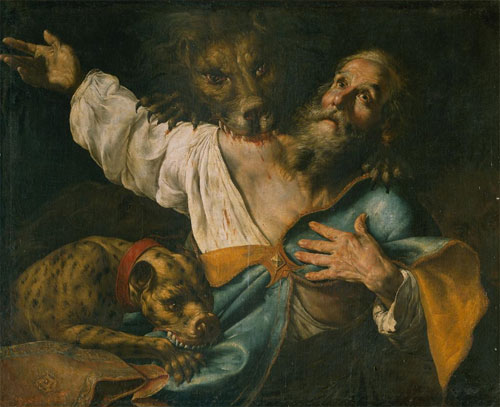
This entry was posted on Tuesday, January 20th, 2015 at 12:21 pm
You can follow any responses to this entry through the RSS 2.0 feed.
From a sermon by Saint Leo the Great, pope
(Sermo 1 in Nativitate Domini, 1-3: PI, 54, 190-193)
Christian, remember your dignity
Dearly beloved, today our Saviour is born; let us rejoice. Sadness should have no place on the birthday of life. The fear of death has been swallowed up; life brings us joy with the promise of eternal happiness.
No one is shut out from this joy; all share the same reason for rejoicing. Our Lord, victor over sin and death, finding no man free from sin, came to free us all. Let the saint rejoice as he sees the palm of victory at hand. Let the sinner be glad as he receives the offer of forgiveness. Let the pagan take courage as he is summoned to life.
In the fullness of time, chosen in the unfathomable depths of God’s wisdom, the Son of God took for himself our common humanity in order to reconcile it with its creator. He came to overthrow the devil, the origin of death, in that very nature by which he had overthrown mankind.
And so at the birth of our Lord the angels sing in joy: Glory to God in the highest, and they proclaim peace to men of good will as they see the heavenly Jerusalem being built from all the nations of the world. When the angels on high are so exultant at this marvellous work of God’s goodness, what joy should it not bring to the lowly hearts of men?
Beloved, let us give thanks to God the Father, through his Son, in the Holy Spirit, because in his great love for us he took pity on us, and when we were dead in our sins he brought us to life with Christ, so that in him we might be a new creation. Let us throw off our old nature and all its ways and, as we have come to birth in Christ, let us renounce the works of the flesh.
Christian, remember your dignity, and now that you share in God’s own nature, do not return by sin to your former base condition. Bear in mind who is your head and of whose body you are a member. Do not forget that you have been rescued from the power of darkness and brought into the light of God’s kingdom.
Through the sacrament of baptism you have become a temple of the Holy Spirit. Do not drive away so great a guest by evil conduct and become again a slave to the devil, for your liberty was bought by the blood of Christ.
Excerpts from the English translation of The Liturgy of the Hours (Four Volumes) © 1974, International Commission on English in the Liturgy Corporation. All rights reserved.
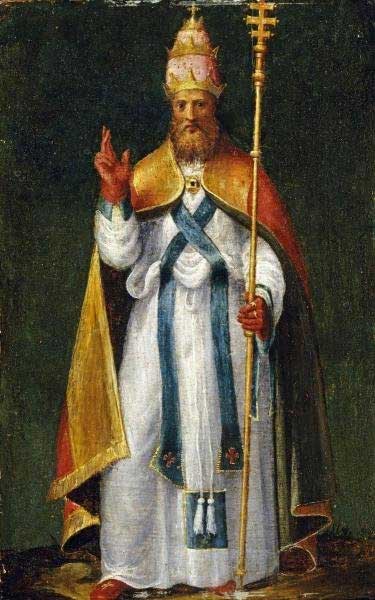
This entry was posted on Thursday, December 25th, 2014 at 6:55 am
You can follow any responses to this entry through the RSS 2.0 feed.
[powerpress]
From a Spiritual Canticle of St John of the Cross, priest
The knowledge of the mystery hidden within Christ Jesus
Though holy doctors have uncovered many mysteries and wonders, and devout souls have understood them in this earthly condition of ours, yet the greater part still remains to be unfolded by them, and even to be understood by them.
We must then dig deeply in Christ. He is like a rich mine with many pockets containing treasures: however deep we dig we will never find their end or their limit. Indeed, in every pocket new seams of fresh riches are discovered on all sides.
For this reason the apostle Paul said of Christ: In him are hidden all the treasures of the wisdom and knowledge of God. The soul cannot enter into these treasures, nor attain them, unless it first crosses into and enters the thicket of suffering, enduring interior and exterior labours, and unless it first receives from God very many blessings in the intellect and in the senses, and has undergone long spiritual training.
All these are lesser things, disposing the soul for the lofty sanctuary of the knowledge of the mysteries of Christ: this is the highest wisdom attainable in this life.
Would that men might come at last to see that it is quite impossible to reach the thicket of the riches and wisdom of God except by first entering the thicket of much suffering, in such a way that the soul finds there its consolation and desire. The soul that longs for divine wisdom chooses first, and in truth, to enter the thicket of the cross.
Saint Paul therefore urges the Ephesians not to grow weary in the midst of tribulations, but to be steadfast and rooted and grounded in love, so that they may know with all the saints the breadth, the length, the height and the depth – to know what is beyond knowledge, the love of Christ, so as to be filled with all the fullness of God.
The gate that gives entry into these riches of his wisdom is the cross; because it is a narrow gate, while many seek the joys that can be gained through it, it is given to few to desire to pass through it.
Excerpts from the English translation of The Liturgy of the Hours (Four Volumes) © 1974, International Commission on English in the Liturgy Corporation. All rights reserved.
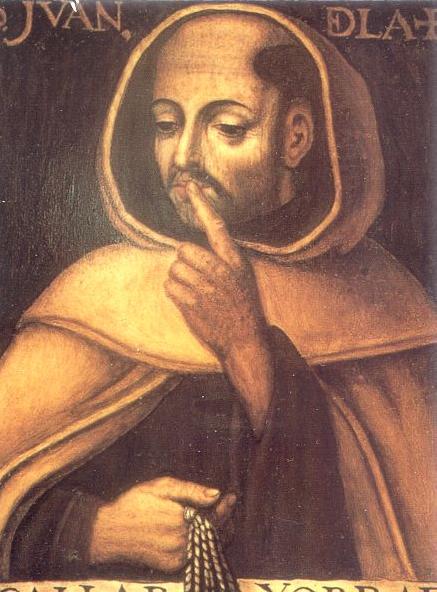
St. John of the Cross
This entry was posted on Tuesday, December 23rd, 2014 at 9:15 am
You can follow any responses to this entry through the RSS 2.0 feed.
[powerpress]
From the Imitation of Christ
On humility and peace
Do not care much who is with you and who is against you; but make it your greatest care that God is with you in everything you do.
Have a good conscience, and God will defend you securely; no one can hurt you if God wishes to help you.
If you know how to suffer in silence, you will surely receive God’s help. Since he knows best the time and the way to set you free, resign yourself to him, for God helps you and frees you from all confusion.
It is often good for us, and helps us to remain humble, if others know our weaknesses and confront us with them.
When a man humbles himself for his faults, he more easily pleases others and mollifies those he has angered.
God protects and frees a humble man; he loves and consoles a humble man; he favors a humble man; he showers him with graces; then, after his suffering, God raises him up to glory.
He reveals his secrets to a humble man and in his kindness invitingly draws that man to himself. When a humble man is brought to confusion, he experiences peace, because he stands firm in God and not in this world. Do not think that you have made any progress unless you feel that you are the lowest of all men.
Above all things, keep peace within yourself, then you will be able to create peace among others. It is better to be peaceful than learned.
The passionate man often thinks evil of a good man and easily believes the worst; a good and peaceful man turns all things to good.
A man who lives at peace suspects no one. But a man who is tense and agitated by evil is troubled with all kinds of suspicions; he is never at peace with himself, nor does he permit others to be at peace.
He often speaks when he should be silent, and he fails to say what would be truly useful. He is well aware of the obligations of others but neglects his own.
So be zealous first of all with yourself, and then you will be more justified in expressing zeal for your neighbor.
You are good at excusing and justifying your own deeds, and yet you will not listen to the excuses of others. It would be more just to accuse yourself and excuse your neighbor.
If you wish others to put up with you, first put up with them.
Excerpts from the English translation of The Liturgy of the Hours (Four Volumes) © 1974, International Commission on English in the Liturgy Corporation. All rights reserved.
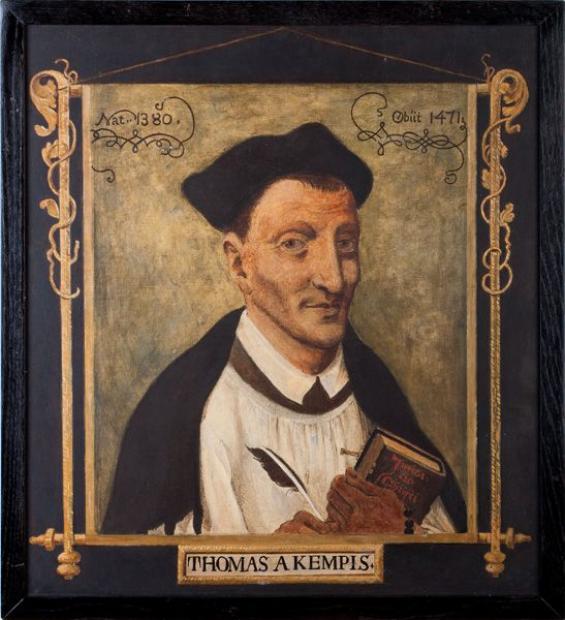
This entry was posted on Monday, December 22nd, 2014 at 2:57 pm
You can follow any responses to this entry through the RSS 2.0 feed.
[powerpress]
From The Memoirs by the secretary of St. Jane Frances de Chantal
Love is as strong as death
One day Saint Jane spoke the following eloquent words, which listeners took down exactly as spoken:
“My dear daughters, many of our holy fathers in the faith, men who were pillars of the Church, did not die martyrs. Why do you think this was?” Each one present offered an answer; then their mother continued. “Well, I myself think it was because there is another martyrdom: the martyrdom of love. Here God keeps his servants and handmaids in this present life so that they may labor for him, and he makes of them both martyrs and confessors. I know,” she added, “that the Daughters of the Visitation are meant to be martyrs of this kind, and that, by the favor of God, some of them, more fortunate than others in that their desire has been granted, will actually suffer such a martyrdom.”
One sister asked what form this martyrdom took. The saint answered: “Yield yourself fully to God, and you will find out! Divine love takes its sword to the hidden recesses of our inmost soul and divides us from ourselves. I know one person whom love cut off from all that was dearest to her, just as completely and effectively as if a tyrant’s blade had severed spirit from body.”
We realized that she was speaking of herself. When another sister asked how long the martyrdom would continue, the Saint replied: “From the moment when we commit ourselves unreservedly to God, until our last breath. I am speaking, of course, of great-souled individuals who keep nothing back for themselves, but instead are faithful in love. Our Lord does not intend this martyrdom for those who are weak in love and perseverance. Such people he lets continue on their mediocre way, so that they will not be lost to him; he never does violence to our free will.”
Finally, the saint was asked whether this martyrdom of love could be put on the same level as martyrdom of the body. She answered: “We should not worry about equality. I do think, however, that the martyrdom of love cannot be relegated to a second place, for love is as strong as death. For the martyrs of love suffer infinitely more in remaining in this life so as to serve God, than if they died a thousand times over in testimony to their faith and love and fidelity.”
Excerpts from the English translation of The Liturgy of the Hours (Four Volumes) © 1974, International Commission on English in the Liturgy Corporation. All rights reserved.

This entry was posted on Monday, December 15th, 2014 at 5:52 pm
You can follow any responses to this entry through the RSS 2.0 feed.
[powerpress]
From a sermon by Saint Anselm, bishop
Virgin Mary, all nature is blessed by you
Blessed Lady, sky and stars, earth and rivers, day and night – everything that is subject to the power or use of man – rejoice that through you they are in some sense restored to their lost beauty and are endowed with inexpressible new grace. All creatures were dead, as it were, useless for men or for the praise of God, who made them. The world, contrary to its true destiny, was corrupted and tainted by the acts of men who served idols. Now all creation has been restored to life and rejoices that it is controlled and given splendour by men who believe in God. The universe rejoices with new and indefinable loveliness. Not only does it feel the unseen presence of God himself, its Creator, it sees him openly, working and making it holy. These great blessings spring from the blessed fruit of Mary’s womb.
Through the fullness of the grace that was given you, dead things rejoice in their freedom, and those in heaven are glad to be made new. Through the Son who was the glorious fruit of your virgin womb, just souls who died before his life-giving death rejoice as they are freed from captivity, and the angels are glad at the restoration of their shattered domain.
Lady, full and overflowing with grace, all creation receives new life from your abundance. Virgin, blessed above all creatures, through your blessing all creation is blessed, not only creation from its Creator, but the Creator himself has been blessed by creation.
To Mary God gave his only-begotten Son, whom he loved as himself. Through Mary God made himself a Son, not different but the same, by nature Son of God and Son of Mary. The whole universe was created by God, and God was born of Mary. God created all things, and Mary gave birth to God. The God who made all things gave himself form through Mary, and thus he made his own creation. He who could create all things from nothing would not remake his ruined creation without Mary.
God, then, is the Father of the created world and Mary the mother of the re-created world. God is the Father by whom all things were given life, and Mary the mother through whom all things were given new life. For God begot the Son, through whom all things were made, and Mary gave birth to him as the Saviour of the world. Without God’s Son, nothing could exist; without Mary’s Son, nothing could be redeemed.
Truly the Lord is with you, to whom the Lord granted that all nature should owe as much to you as to himself.
Excerpts from the English translation of The Liturgy of the Hours (Four Volumes) © 1974, International Commission on English in the Liturgy Corporation. All rights reserved.
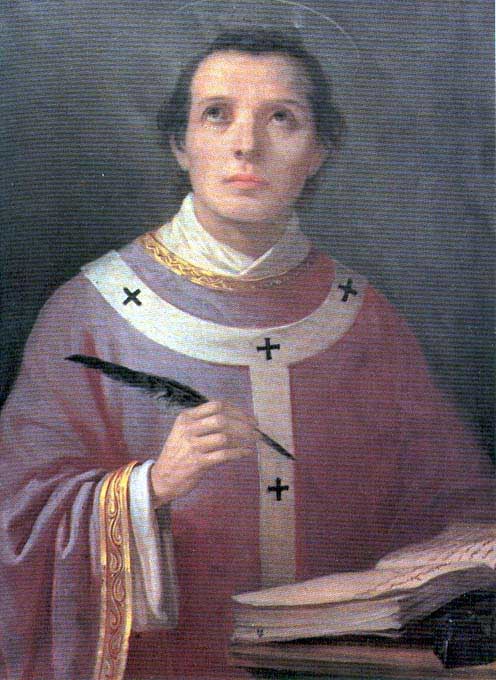 “
“
This entry was posted on Monday, December 8th, 2014 at 8:49 am
You can follow any responses to this entry through the RSS 2.0 feed.
[powerpress]
A commentary on the Diatessaron by St Ephrem
Keep watch: He is to come again
To prevent his disciples from asking the time of his coming, Christ said: About that hour no one knows, neither the angels nor the Son. It is not for you to know times or moments. He has kept those things hidden so that we may keep watch, each of us thinking that he will come in our own day. If he had revealed the time of his coming, his coming would have lost its savour: it would no longer be an object of yearning for the nations and the age in which it will be revealed. He promised that he would come but did not say when he would come, and so all generations and ages await him eagerly.
Though the Lord has established the signs of his coming, the time of their fulfilment has not been plainly revealed. These signs have come and gone with a multiplicity of change; more than that, they are still present. His final coming is like his first. As holy men and prophets waited for him, thinking that he would reveal himself in their own day, so today each of the faithful longs to welcome him in his own day, because Christ has not made plain the day of his coming.
He has not made it plain for this reason especially, that no one may think that he whose power and dominion rule all numbers and times is ruled by fate and time. He described the signs of his coming; how could what he has himself decided be hidden from him? Therefore, he used these words to increase respect for the signs of his coming, so that from that day forward all generations and ages might think that he would come again in their own day.
Keep watch; when the body is asleep nature takes control of us, and what is done is not done by our will but by force, by the impulse of nature. When deep listlessness takes possession of the soul, for example, faint-heartedness or melancholy, the enemy overpowers it and makes it do what it does not will. The force of nature, the enemy of the soul, is in control.When the Lord commanded us to be vigilant, he meant vigilance in both parts of man: in the body, against the tendency to sleep; in the soul, against lethargy and timidity. As Scripture says: Wake up, you just, and I have risen, and am still with you; and again, Do not lose heart. Therefore, having this ministry, we do not lose heart.
Excerpts from the English translation of The Liturgy of the Hours (Four Volumes) © 1974, International Commission on English in the Liturgy Corporation. All rights reserved.
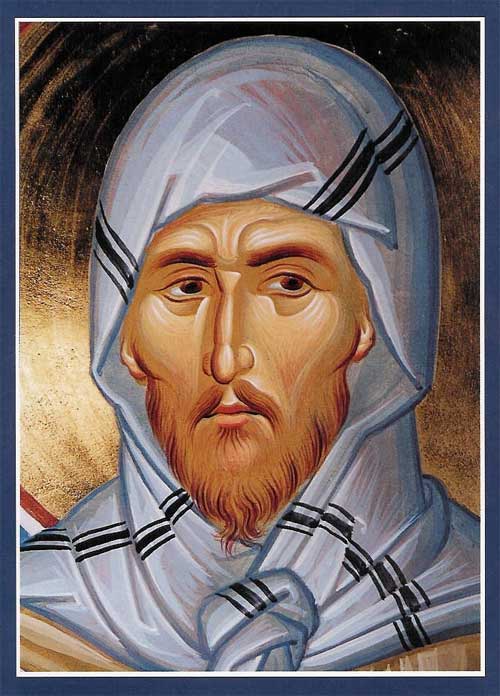
This entry was posted on Thursday, December 4th, 2014 at 1:51 am
You can follow any responses to this entry through the RSS 2.0 feed.
[powerpress]
From The Statement of Faith by St. John Damascene, priest
You have called me, Lord, to minister to your people
O Lord, you led me from my father’s loins and formed me in my mother’s womb. You brought me, a naked babe, into the light of day, for nature’s laws always obey your commands.
By the blessing of the Holy Spirit, you prepared my creation and my existence, not because man willed it or flesh desired it, but by your ineffable grace. The birth you prepared for me was such that it surpassed the laws of our nature. You sent me forth into the light by adopting me as your son and you enrolled me among the children of your holy and spotless Church.
You nursed me with the spiritual milk of your divine utterances. You kept me alive with the solid food of the body of Jesus Christ, your only-begotten Son for our redemption. And he undertook the task willingly and did not shrink from it. Indeed, he applied himself to it as though destined for sacrifice, like an innocent lamb. Although he was God, he became man, and in his human will, became obedient to you, God his Father, unto death, even death on a cross.
In this way you have humbled yourself, Christ my God, so that you might carry me, your stray sheep, on your shoulders. You let me graze in green pastures, refreshing me with the waters of orthodox teaching at the hands of your shepherds. You pastured these shepherds, and now they in turn tend your chosen and special flock. Now you have called me, Lord, by the hand of your bishop to minister to your people. I do not know why you have done so, for you alone know that. Lord, lighten the heavy burden of the sins through which I have seriously transgressed. Purify my mind and heart. Like a shining lamp, lead me along the straight path. When I open my mouth, tell me what I should say. By the fiery tongue of your Spirit make my own tongue ready. Stay with me always and keep me in your sight.
Lead me to pastures, Lord, and graze there with me. Do not let my heart lean either to the right or to the left, but let your good Spirit guide me along the straight path. Whatever I do, let it be in accordance with your will, now until the end.
And you, O Church, are a most excellent assembly, the noble summit of perfect purity, whose assistance comes from God. You in whom God lives, receive from us an exposition of the faith that is free from error, to strengthen the Church, just as our Fathers handed it down to us.
Excerpts from the English translation of The Liturgy of the Hours (Four Volumes) © 1974, International Commission on English in the Liturgy Corporation. All rights reserved.
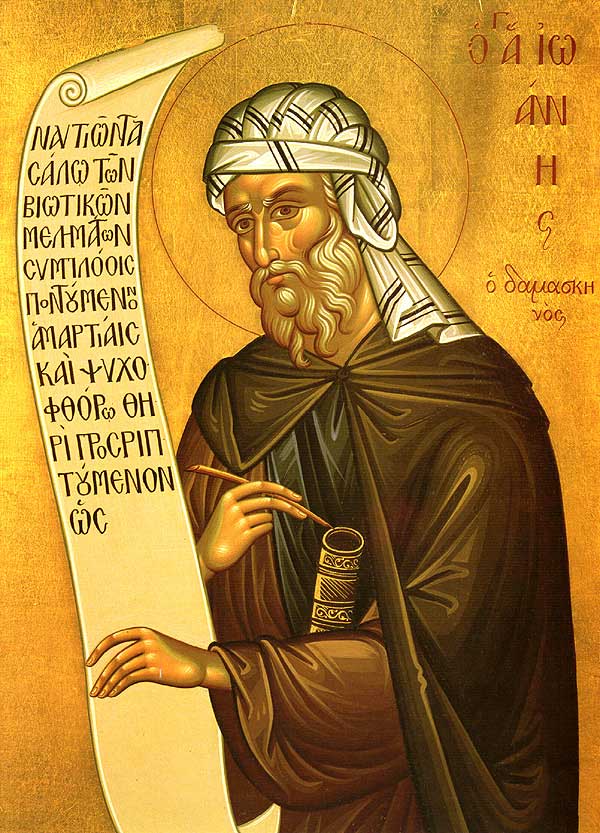
This entry was posted on Thursday, December 4th, 2014 at 12:44 am
You can follow any responses to this entry through the RSS 2.0 feed.
[powerpress]
From a sermon by Saint Bernard, abbot
The Three Comings of the Lord
We know that there are three comings of the Lord. The third lies between the other two. It is invisible, while the other two are visible. In the first coming he was seen on earth, dwelling among men; he himself testifies that they saw him and hated him. In the final coming all flesh will see the salvation of our God, and they will look on him whom they pierced. The intermediate coming is a hidden one; in it only the elect see the Lord within their own selves, and they are saved. In his first coming our Lord came in our flesh and in our weakness; in this middle coming he comes in spirit and in power; in the final coming he will be seen in glory and majesty.
In case someone should think that what we say about this middle coming is sheer invention, listen to what our Lord himself ways: If anyone loves me, he will keep my word, and my Father will love him, and we will come to him. There is another passage of Scripture which reads: He who fears God will do good, but something further has been said about the one who loves, that is, that he will keep God’s word. Where is God’s word to be kept? Obviously in the heart, as the prophet says: I have hidden your words in my heart, so that I may not sin against you.
Keep God’s word in this way. Let it enter into your very being, let it take possession of your desires and your whole way of life. Feed on goodness, and your soul will delight in its richness. Remember to eat your bread, or your heart will wither away. Fill your soul with richness and strength.
Because this coming lies between the other two, it is like a road on which we travel from the first coming to the last. In the first, Christ was our redemption; in the last, he will appear as our life; in this middle coming, he is our rest and consolation.
If you keep the word of God in this way, it will also keep you. The Son with the Father will come to you. The great Prophet who will build the new Jerusalem will come, the one who makes all things new. This coming will fulfill what is written: As we have borne the likeness of the earthly man, we shall also bear the likeness of the heavenly man. Just as Adam’s sin spread through all mankind and took hold of all, so Christ, who created and redeemed all, will glorify all, once he takes possession of all.
Excerpts from the English translation of The Liturgy of the Hours (Four Volumes) © 1974, International Commission on English in the Liturgy Corporation. All rights reserved.
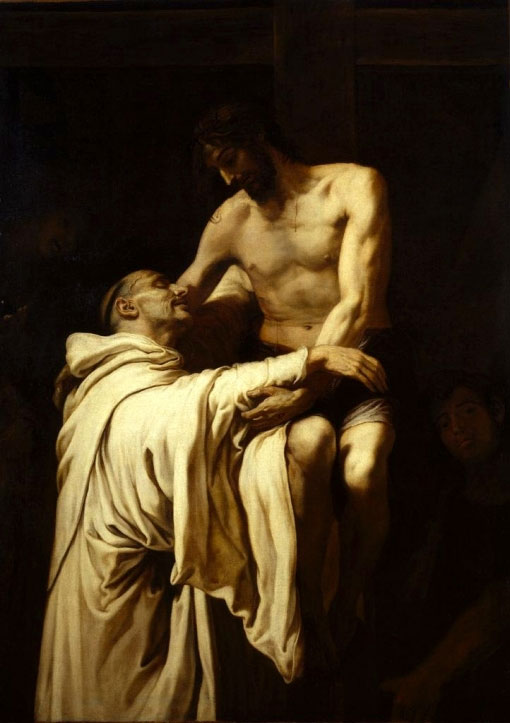
St. Bernard
This entry was posted on Wednesday, December 3rd, 2014 at 3:38 pm
You can follow any responses to this entry through the RSS 2.0 feed.
[powerpress]
A letter from St Francis Xavier to St Ignatius
Woe to me if I do not preach the Gospel
We have visited the villages of the new converts who accepted the Christian religion a few years ago. No Portuguese live here, the country is so utterly barren and poor. The native Christians have no priests. They know only that they are Christians. There is nobody to say Mass for them; nobody to teach them the Creed, the Our Father, the Hail Mary and the Commandments of God’s Law.
I have not stopped since the day I arrived. I conscientiously made the rounds of the villages. I bathed in the sacred waters all the children who had not yet been baptized. This means that I have purified a very large number of children so young that, as the saying goes, they could not tell their right hand from their left. The older children would not let me say my Office or eat or sleep until I taught them one prayer or another. Then I began to understand: “The kingdom of heaven belongs to such as these.â€
I could not refuse so devout a request without failing in devotion myself. I taught them, first the confession of faith in the Father, the Son and the Holy Spirit, then the Apostles’ Creed, the Our Father and Hail Mary. I noticed among them persons of great intelligence. If only someone could educate them in the Christian way of life, I have no doubt that they would make excellent Christians.
Many, many people hereabouts are not becoming Christians for one reason only: there is nobody to make them Christians. Again and again I have thought of going round the universities of Europe, especially Paris, and everywhere crying out like a madman, riveting the attention of those with more learning than charity: “What a tragedy: how many souls are being shut out of heaven and falling into hell, thanks to you!â€
I wish they would work as hard at this as they do at their books, and so settle their account with God for their learning and the talents entrusted to them.
This thought would certainly stir most of them to meditate on spiritual realities, to listen actively to what God is saying to them. They would forget their own desires, their human affairs, and give themselves over entirely to God’s will and his choice. They would cry out with all their heart: Lord, I am here! What do you want me to do? Send me anywhere you like – even to India.
Excerpts from the English translation of The Liturgy of the Hours (Four Volumes) © 1974, International Commission on English in the Liturgy Corporation. All rights reserved.
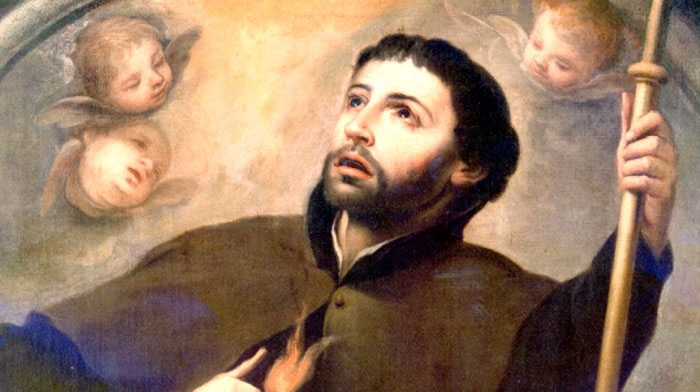
This entry was posted on Wednesday, December 3rd, 2014 at 3:10 pm
You can follow any responses to this entry through the RSS 2.0 feed.
[powerpress]
St Gregory Nazianzen
The wonder of the Incarnation
The very Son of God, older than the ages, the invisible, the incomprehensible, the incorporeal, the beginning of beginning, the light of light, the fountain of life and immortality, the image of the archetype, the immovable seal, the perfect likeness, the definition and word of the Father: he it is who comes to his own image and takes our nature for the good of our nature, and unites himself to an intelligent soul for the good of my soul, to purify like by like. He takes to himself all that is human, except for sin. He was conceived by the Virgin Mary, who had been first prepared in soul and body by the Spirit; his coming to birth had to be treated with honour, virginity had to receive new honour. He comes forth as God, in the human nature he has taken, one being, made of two contrary elements, flesh and spirit. Spirit gave divinity, flesh received it.
He who makes rich is made poor; he takes on the poverty of my flesh, that I may gain the riches of his divinity. He who is full is made empty; he is emptied for a brief space of his glory, that I may share in his fullness. What is this wealth of goodness? What is this mystery that surrounds me? I received the likeness of God, but failed to keep it. He takes on my flesh, to bring salvation to the image, immortality to the flesh. He enters into a second union with us, a union far more wonderful than the first.
Holiness had to be brought to man by the humanity assumed by one who was God, so that God might overcome the tyrant by force and so deliver us and lead us back to himself through the mediation of his Son. The Son arranged this for the honour of the Father, to whom the Son is clearly obedient in all things.
The Good Shepherd, who lays down his life for the sheep, came in search of the straying sheep to the mountains and hills on which you used to offer sacrifice. When he found it, he took it on the shoulders that bore the wood of the cross, and led it back to the life of heaven.
Christ, the light of all lights, follows John, the lamp that goes before him. The Word of God follows the voice in the wilderness; the bridegroom follows the bridegroom’s friend, who prepares a worthy people for the Lord by cleansing them by water in preparation for the Spirit.
We needed God to take our flesh and die, that we might live. We have died with him, that we may be purified. We have risen again with him, because we have died with him. We have been glorified with him, because we have risen again with him.
Excerpts from the English translation of The Liturgy of the Hours (Four Volumes) © 1974, International Commission on English in the Liturgy Corporation. All rights reserved.
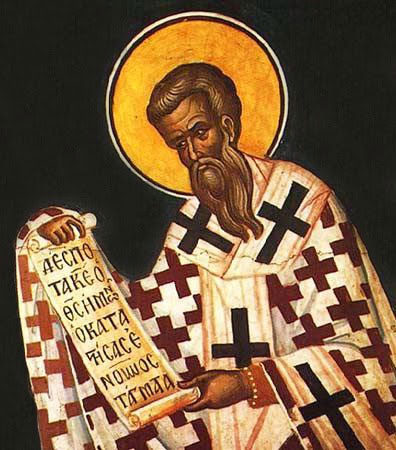
Tags: incarnation
This entry was posted on Tuesday, December 2nd, 2014 at 12:17 pm
You can follow any responses to this entry through the RSS 2.0 feed.

